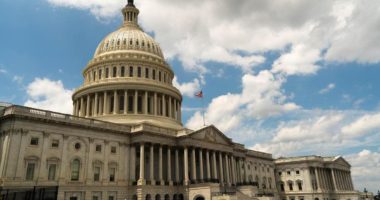In a Final Rule issued last fall, the Department of Health and Human Services (HHS) Office of Inspector General (OIG) added seven new safe harbors to the Medicare/Medicaid anti-kickback statute. On Dec. 2, 2020, the Centers for Medicare and Medicaid Services (CMS) published a Final Rule that modernizes and clarifies the Physician Self-Referral or Stark Law Regulations. The high points of these new rules are summarized below. Read a more in-depth analysis of the anti-kickback rule.
Changes to the Anti-Kickback Law
The anti-kickback statute prohibits health care providers from offering or accepting payment, in any form, to induce referrals of services paid for by Medicare, Medicaid, or any other federal health care program. The statute has been in effect for many years, and violation carries criminal penalties. The OIG has created certain safe harbors that define arrangements considered legal, which will not trigger enforceable action under the anti-kickback law. Physicians and other providers have relied on these safe harbors to ensure their arrangements comply with federal law. Failure to meet a safe harbor does not mean an arrangement is illegal but rather that it will be evaluated based on its specific facts and circumstances.
In the recent Final Rule, the OIG announced several new safe harbors and expanded existing ones to create new flexibilities for health care providers. Following are those most likely to affect allergists/allergy.

Personal Service and Management Contracts
One important change involves the safe harbor that protects personal service and management contracts. This safe harbor is often relied upon when a hospital or other health care provider hires physicians under independent contractor arrangements or to serve as medical directors. Previously, it was very difficult for such arrangements to qualify for this safe harbor unless they were for full-time services. The Final Rule makes it much easier for part-time arrangements to qualify. College members who provide part-time services to entities to which they may also refer or from whom they accept referrals may want to review these arrangements to determine if they can qualify for this safe harbor protection.
Value-Based Enterprises
As part of its effort to promote value-based care, the Final Rule also creates several new safe harbors for various types of value-based enterprises whose goal is to improve quality of care and reduce costs. These safe harbors might, for example, allow a hospital system to provide community physicians with free technology to use in monitoring patients recently discharged from the hospital with the goal of preventing readmissions.
Items and Services Offered to Patients
Another safe harbor allows providers that are part of a value-based enterprise to give patients certain tools – up to $500 in value per year – to promote adherence to a treatment or drug regimen, to prevent or manage a disease, or to ensure patient safety. This might, for example, allow allergists who participate in a value-based enterprise to offer certain free services or technology to help patients manage their asthma.
Software and Cybersecurity Technology
Another new safe harbor permits nonmonetary donations of software and cybersecurity technology to health care providers. This is in addition to the existing electronic health records (EHR) safe harbor which protects remuneration intended to support EHR. The new cybersecurity safe harbor allows donation of technology that is necessary and used predominantly for cybersecurity purposes. It could, for example, allow a hospital system to furnish free cybersecurity technology to physicians in its network.
Changes to Stark Law
The Stark law prohibits physicians from making referrals for certain designated health services (DHS) to entities with which they have a financial relationship unless an exception applies. The recent revisions to the Stark law exceptions are similar to some of the new safe harbors described above, with new exceptions for certain value-based enterprises and a new exception for cybersecurity and technology.
Narrowing of Profit Distribution Rules
CMS has also narrowed the exception that allows for profit distribution based on referrals for ancillary services. The Stark law and regulations have long restricted the way compensation is paid to physicians inside group practices – to ensure that group members are not financially rewarded for overutilizing ancillary services provided by the group – based on the physician’s referrals. More details and examples of this rule will follow at a later date.
The Advocacy Council has published other articles to explain the final 2021 Physician Fee Schedule as it affects coding in your practice. These articles include:
Watch for additional information from the College related to the 2021 fee schedule.
The Advocacy Council – we have you covered.



